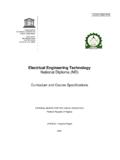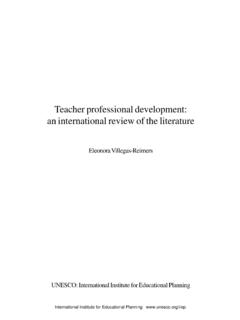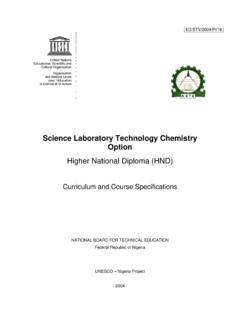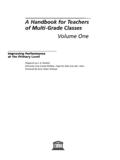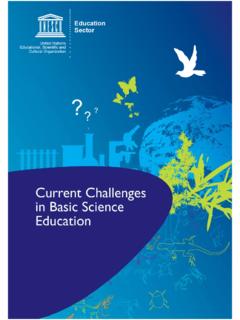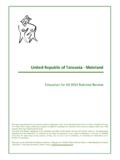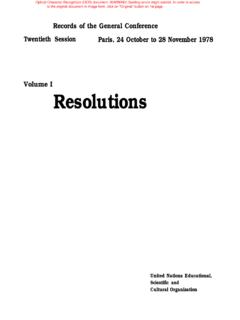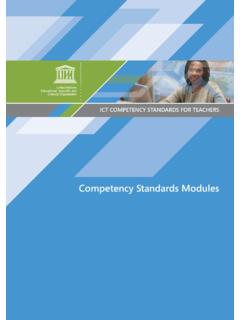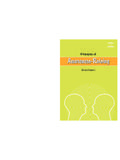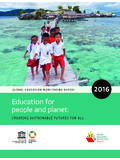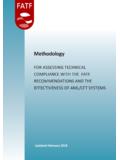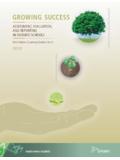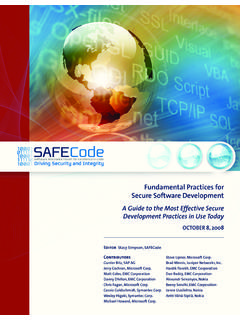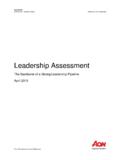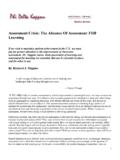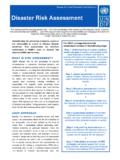Transcription of Continuous assessment for improved teaching and …
1 _____. In-Progress Reflection No. 13 on Current and Critical Issues in Curriculum, Learning and assessment _____. Continuous assessment for improved teaching and Learning: A. Critical Review to Inform Policy and Practice Title Continuous assessment for improved teaching and Learning: A. Critical Review to Inform Policy and Practice Series Current and Critical Issues in Curriculum, Learning and assessment In-Progress Reflection August, 2017, IBE/2017/WP/CD/13. IBE-UNESCO Director Dr. Mmantsetsa Marope Coordination and Production Renato Opertti, Ioanna Siakalli, Caitlin Vaverek, Jingxiu Zhang Team at the IBE-UNESCO.
2 Author Joshua A. Muskin Keywords Continuous assessment education quality formative assessment low-income countries summative assessment 2. Open Note of the IBE. The IBE has launched the series In-Progress Reflections on Current and Critical Issues in Curriculum, Learning and assessment to open a communal space for a global conversation, collective production and discussion on those issues of high concern for Member States. It intends to support country efforts in mainstreaming challenging issues within the processes of curriculum renewal and development across different levels, settings and provisions of the education system.
3 Initially, the focus areas of the In-Progress Reflections series encompass, among others,: (i) Early Childhood Care and Education (ECCE) as a foundation of holistic child development and learning; (ii). Reading and writing in early grades to support the development of essential competencies; (iii) Youth Culture and competencies for Youth in the early 21st century (covering formal, non-formal and informal education); (iv) ICT curricula and inclusive pedagogy contributing to relevant and effective learning outcomes; (v) STEM (Science, Technology, Engineering and Mathematics) curricula to foster sustainable development.
4 (vi) Curriculum for Global Citizenship Education (peace, human rights, sustainable development, values, ethics, multiculturalism, etc.); (vii) assessment to enhance and support learning opportunities; and (viii) Inclusive education as an over guiding principle of education systems. The series of reflections covers a wide array of knowledge products, among them: discussion papers, policy briefs, frameworks, guidelines, prototypes, resource packs, learning tools and multimedia resources. These materials are discussed, refined, used and disseminated engaging education and curriculum agencies / institutes, and in particular curriculum developers and specialists, development experts, policy makers, teacher trainers, supervisors, principals, teachers, researchers and other educational stakeholders.
5 In addition, they serve as reference materials for the IBE menu of capacity- development training on curriculum, learning and quality education namely masters, diplomas, certificates and workshops to forge policy and technical dialogue involving a diversity of stakeholders and to support sustainable country fieldwork. Through blogs and e-forums, we encourage the audience to actively interact and bring in diverse perspectives. Effectively, the online space for reflection allows us to stay connected, facilitates exchange between experts from different regions of the world, and truly fosters Continuous reflection on the issues concerned.
6 The blog is structured to gather diverse resources, which include tools and documents (as previously mentioned) under specific themes to provide a complex and rich set of materials targeted to the specific needs of Member States. The In-Progress Reflections will capture relevant visions, views and comments shared by the audience, and serve as a key resource to support Member States' efforts in mainstreaming relevant findings and effective practices in national policies, curriculum frameworks and developments and in professional practices. Dr. Mmantsetsa Marope: Director, International Bureau of Education 3.
7 Continuous assessment for improved teaching and Learning: A. Critical Review to Inform Policy and Practice Abstract: The prominence of evaluation and assessment within the Incheon Declaration: Education 2030 mirrors simultaneously the vital importance of data in the pursuit of the new global Sustainable Development Goals (SDGs) and the decades-long trend of evermore student testing around the world. This report focuses specifically on Continuous assessment and has two main aims: to elucidate what Continuous assessment is and why it is important, and to identify a range of issues which are fundamental to the effective implementation and usefulness of Continuous assessment in the classroom.
8 The analysis focuses on classrooms in low-income countries that often face particularly problematic challenges. The concept and practice of Continuous assessment is understood in part through its differences from standardized assessment , whilst at the same time it functions with summative and formative forms. The report aspires to deepen the distinctions between these two forms of Continuous assessment , to demonstrate their complementarities, and to plumb their technical dimensions to promote its improved use. The hope is to help education systems, educators, and education partners, wherever they may be, to make decisions and take actions to reap the fullest advantage of Continuous assessment as a key factor in achieving quality education.
9 Keywords: Continuous assessment education quality formative assessment low-income countries summative assessment 4. Contents Introduction .. 7. Continuous assessment - what it is and why it is important .. 9. Continuous assessment vs. standardized assessments .. 9. Continuous assessment as a continuum of purposes and methods .. 10. Continuous assessment for summative and accountability purposes .. 11. Continuous assessment for formative purposes .. 11. Looking across the various spectra of Continuous assessment .. 12. An updated framework of Continuous assessment .
10 13. Core principles of Continuous assessment .. 14. assessment must be fit' to purpose .. 15. Continuous assessment must serve purposefully and strategically to improve teaching and learning .. 16. assessment must engage students fully and purposefully in their learning .. 17. assessment should also influence factors beyond teaching and learning .. 18. Other core features and issues of Continuous 19. 1. 19. 2. Breadth of coverage .. 23. 3. 25. Doing Continuous assessment a matter of capacity .. 32. Intrinsic capacities required for effective Continuous assessment .
